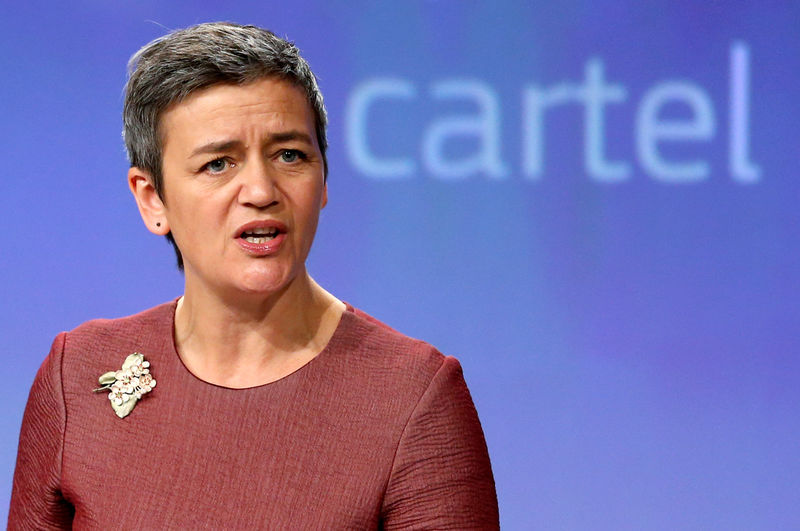Who is Kevin Hassett? Wolfe looks at the Trump ally tipped to become Fed Chair.
By Francesco Guarascio
BRUSSELS (Reuters) - The European Commission hinted at possible progress in its assessment of a rescue plan for Banca Monte dei Paschi di Siena (MI:BMPS) on Wednesday, after receiving information on the bank's capital needs.
The EU Commission and the European Central Bank have held weeks of inconclusive negotiations over Monte Paschi's rescue plan, which can only go ahead with their approval.
Italy's Monte dei Paschi, the world's oldest bank, asked for state support in December after failing to raise 5 billion euros ($5.3 billion) on the market to shore up its capital. Since then, the European Commission and the ECB have been discussing the way forward among them and with the bank.
"For us, it has been very important to make sure we have the right basis to work from," EU competition chief Margrethe Vestager told a news conference in Brussels in reply to a question on Monte Paschi.
"We need the supervisor to tell us the fundamentals about the banking questions," she said in reference to the ECB's assessment of the bank's capital needs carried out through the ECB's Single Supervisory Mechanism (SSM).
The bank's capital needs were estimated by the ECB in December at 8.8 billion euros, which will include a significant amount of taxpayers' money. Vestager did not give information about the bank's final capital needs or the time needed to conclude its assessment but said the SSM had provided the necessary information.
"Now the Single Supervisor Mechanism has answered our questions, which will allow us to move forward," Vestager said. It remains unclear whether the two institutions have reached a definitive compromise on the plan.
A restructuring plan for the bank, likely involving the sale of large amounts of bad loans at low prices, also remains under discussion with the bank and Italian authorities, with no compromise in sight.
Vestager dismissed speculation about a conflict between the Commission and the ECB on Monte Paschi's rescue plan.
The Commission is in charge of protecting fair competition in the EU market, which pushes Brussels to try to reduce state aid to companies, and block it if deemed illegal.
The Frankfurt-based ECB is responsible for strengthening banks financial stability, a role that makes it more favorable to state support if it makes lenders stronger.
Vestager said the Commission is being careful in dealing with the Monte Paschi rescue because it "will set a precedent".
Under new banking rules in force since last year, banks' investors will have to contribute to rescue operations before taxpayers' money can be used.
The rules, known as bail-in, resulted from a need to put an end to bank support measures that cost trillions of euros to EU states after the 2008 financial crisis.
But the rules have increased risks for retail investors and contributed to spread concerns on euro zone banks.
Italy used an exception embedded in the new rules to rescue Monte Paschi, greatly reducing the investors' costs and resorting to a sizeable public bailout.
Vestager also said the Commission was favorable to approving schemes to compensate investors who were missold risky financial products believing they were safe.
